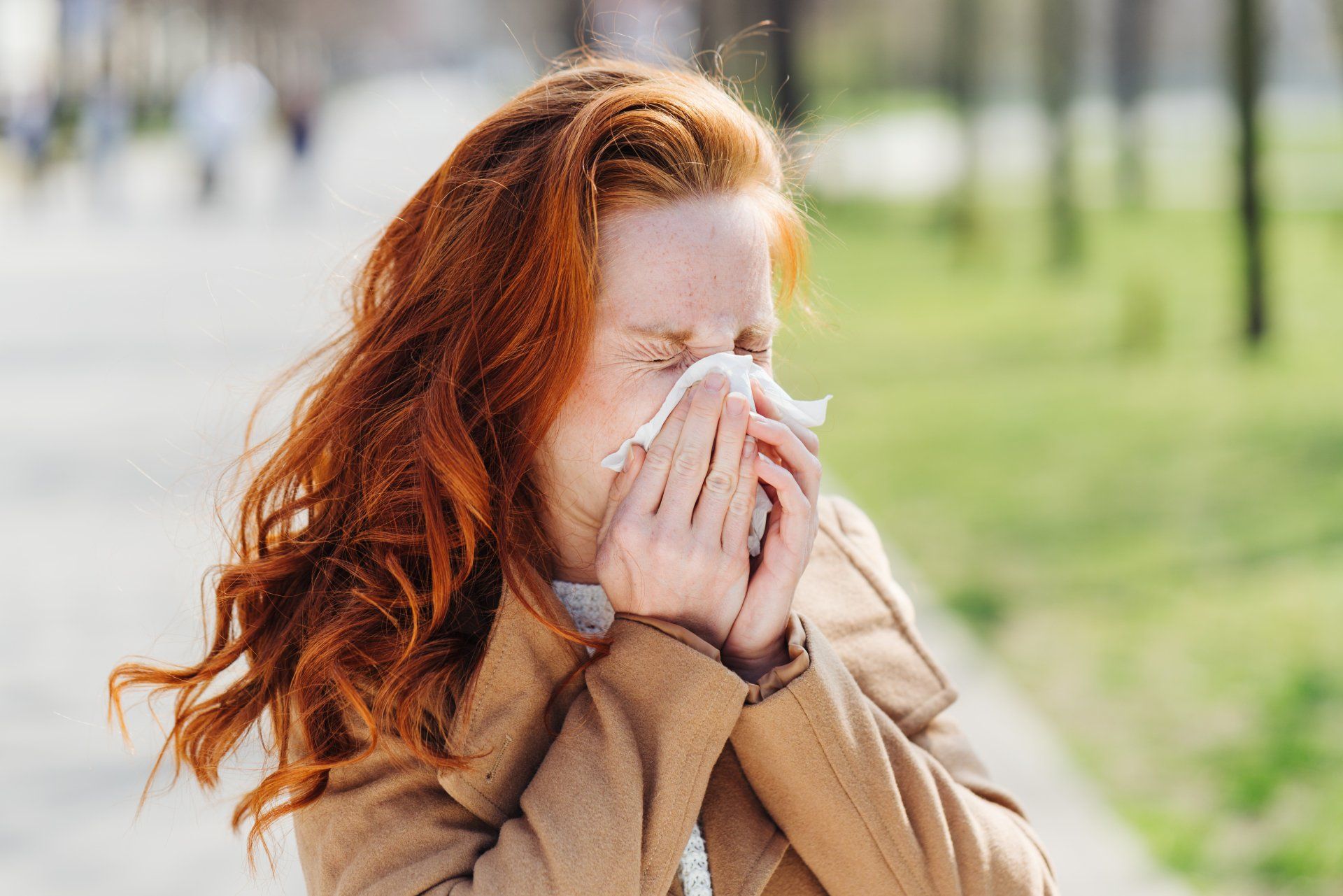What Are the Differences between Allergies and Covid-19?
Given the present-day pandemic, the slightest hint of a sore throat or a runny nose can send you into fits of panic. But if you’ve had allergies for a long time, your symptoms could simply mean that your allergies are aggravated.
How do you distinguish between allergies and COVID-19 when they share common symptoms? This article highlights the key differences between them. Keep reading to know more!
What Is COVID-19? What Are its Symptoms?
COVID-19 is a contagious respiratory disease caused when a person is infected by the SARS-CoV-2 virus. When a person with the virus breathes, coughs, sneezes, or talks, they release respiratory droplets carrying the virus. COVID-19 typically spreads when a person breathes in the air that was contaminated by droplets/airborne particles from infected persons. .
If you have COVID-19, your symptoms will usually appear within 2-14 days of coming into contact with the virus. Your symptoms will vary depending on the severity of your illness. Here are some of the common symptoms of COVID-19, as highlighted by the Centers for Disease Control and Prevention (CDC).
● Cough
● Congestion or runny nose
● Diarrhea
● Fatigue
● Fever or chills
● Headache
● Muscle or body aches
● Nausea or vomiting
● Recent loss of taste or smell
● Shortness of breath or difficulty breathing
● Sore throat
What Are Allergies? What Are Their Symptoms?
Allergies are mistaken responses of the immune system triggered by the presence of a foreign substance that’s not typically harmful to your body. These foreign substances are called allergens, and they can include pollen, pet dander, and some foods.
Unlike COVID-19, allergies are not caused by a virus and are not contagious. Their symptoms can be managed by over-the-counter medication or through treatments. Allergy symptoms vary depending on the severity of your condition. And different people with the same allergy can exhibit different symptoms. However, there are common symptoms by which you can identify an allergic reaction. These symptoms include:
● Coughing
● Ear congestion
● Itchy sinuses, throat, or ear canals
● Loss of smell
● Postnasal drainage
● Repetitive sneezing
● Runny or stuffy nose
● Watery or itchy eyes
COVID-19 or Allergies? How to Tell them Apart?
While COVID-19 and allergies have common symptoms, they’re not the same condition. You can watch out for a few things to tell the difference between the two.
● Unless you have a respiratory condition like asthma, seasonal allergies usually do not lead to breathing difficulties. COVID-19, on the other hand, can cause shortness of breath.
● Allergies don’t cause fever, body aches, or severe coughing. If you exhibit any symptom that is not a common allergy symptom, consider taking an at-home COVID-19 test.
● COVID-19 symptoms begin between 2-14 days of exposure to the virus and take about three weeks to fade. Allergies have chronic symptoms, where you experience on and off symptoms for weeks, and sometimes even months or years.
If you’re still not sure about whether you’re exhibiting allergy symptoms or COVID-19 symptoms, take an at-home COVID-19 test to know for sure. Taking the test two days in a row gives you more reliable results.
Need Expert Help? Consult a Metro Detroit ENT Specialist
If symptoms persist or worsen, seek care from a trusted ENT doctor. Dr. Eric F. Succar, M.D., is a board-certified otolaryngologist (ENT) who practices adult and pediatric ENT with a specialization in complex sinus, nasal, and skull base disorders.
You can visit his clinic in Waterford, MI (Oakland County). Dr. Succar also treats patients from Bloomfield Hills, Clarkston, Pontiac, and Troy, MI. You can reach him at (248) 254-8900 or
contact him online.












